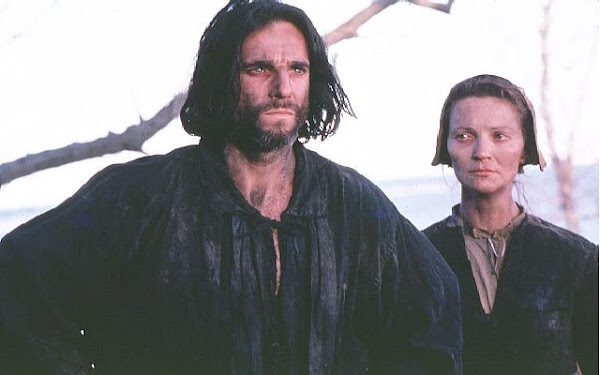In Act four, Proctor destroys the final obstacle to him regaining total redemption. He has a hard time at first. He is offered an opportunity to save his life by confessing to witch craft. He felt that since he was already a bad man he might as well stay alive. He felt that he wasn’t good enough to be hung along with the other Christians because his name is already blackened. He looks toward his wife for advice for what to do and for her forgiveness but she gives him no help. He finally decides to confess. After he finds out that the confession would be shown to the public he rips it up. Toward the end of act four he cares less about public opinion and more about his personal integrity. He still couldn’t the thought of his name being soiled in front of the whole community. He still wanted to save his name but for religious and personal reasons. He feels that he has already given the court his soul and pleads that they let him keep his name. Proctor feels that he needs his name to live and can’t teach his sons too walk up right accused of being a witch. With all of these thoughts going through his mind he tells the truth. His decision caused him to regain his honor. He now felt like a good man. He felt that his goodness was more important than his life.
” I do think I see some shred of goodness in John Proctor. Not enough to weave a banner with, but white enough to keep it from such dogs.”
His refusal to confess to a lie was an important religious stand for him. His friends had decided to die as a testimony to truth and so did he. He didn’t want his reputation and soul to be dishonored. Proctor felt that by the decision not to blacken his soul with the lie would get him into heaven. He felt forgiven by God from all his previous sins and went to the gallows as a good man.
“He have his goodness now. God forbid I tale it from him!”
Monday, April 19, 2010
Subscribe to:
Post Comments (Atom)





No comments:
Post a Comment